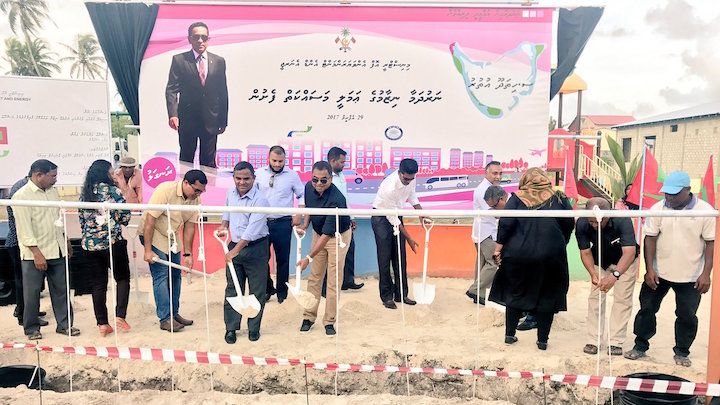Projects and price cuts ahead of local council elections
Ahead of Saturday’s local council elections, ministers have been travelling across the country to launch infrastructure projects, urging voters to choose ruling coalition candidate to ensure the development of their constituencies.

02 May 2017, 9:00 AM
Ahead of Saturday’s local council elections, ministers and lawmakers have been travelling across the country to launch infrastructure projects, urging voters to choose ruling coalition candidate to ensure the development of their constituencies.
During the weekend, Environment Minister Thoriq Ibrahim attended groundbreaking ceremonies for sewerage projects in six islands of the southernmost atoll.
With a campaign poster of President Abdulla Yameen in the backdrop, Thoriq suggested that a city council comprised of Progressive Party of Maldives members would work with the government to develop Addu City.
The current administration will deliver on pledges to develop the country’s second city, he vowed.
Become a member
Get full access to our archive and personalise your experience.
Already a member?
Discussion
No comments yet. Be the first to share your thoughts!
No comments yet. Be the first to join the conversation!
Join the Conversation
Sign in to share your thoughts under an alias and take part in the discussion. Independent journalism thrives on open, respectful debate — your voice matters.




